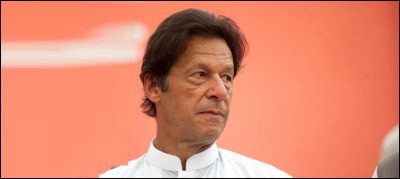Pakistan Confirms Secret Diplomatic Cable Showing U.S. Pressure to Remove Imran Khan
After initially suggesting the cable published by The Intercept was inauthentic, Pakistani officials now claim it doesn’t reveal a conspiracy.

All Global Research articles can be read in 51 languages by activating the Translate Website button below the author’s name.
To receive Global Research’s Daily Newsletter (selected articles), click here.
Click the share button above to email/forward this article to your friends and colleagues. Follow us on Instagram and Twitter and subscribe to our Telegram Channel. Feel free to repost and share widely Global Research articles.
***
For a year and a half, Pakistani politics has been gripped by word of a diplomatic cable said to describe U.S. State Department officials encouraging the removal of former Pakistani Prime Minister Imran Khan from power. Last week, The Intercept published the contents of the cable, known internally as a cypher, which revealed U.S. diplomats pressing for the removal of Khan over his neutral stance on the conflict in Ukraine.
Since it was published, the response to the story from Pakistani and U.S. officials has been both defensive and contradictory.
Pakistan’s leadership quickly began to question the authenticity of the document. Former Foreign Minister Bilawal Bhutto Zardari — who is part of the political opposition to Khan — had gone public suggesting that the published cable was “inauthentic,” arguing that “anything can be typed up on a piece of paper.” Even so, he blamed Khan and said the former prime minister should be tried under Pakistan’s Official Secrets Act for potentially leaking classified documents.
Pakistani Prime Minister Shehbaz Sharif, in the days after the cable was reported, told local media that the leak represented a “massive crime,” while hedging about whether its contents were true. Just days later, though, Sharif confirmed the document in an interview with The Guardian. “Khan said he had the [cable] but he had lost it,” Sharif, who handed over the government to a caretaker prime minister on Monday, said. “Now it has been published on a website.”
Neither Sharif nor Bhutto Zardari have provided evidence of Khan’s involvement in the leak of the document, which was provided to The Intercept by a source inside the Pakistani military. On Wednesday, a month after it announced an investigation, the Pakistani government filed charges against Khan for mishandling and misusing the cable.
Despite confirming the document’s authenticity, Sharif said that the cable — which quoted U.S. diplomats, furious with Khan for his alleged “aggressive neutrality” toward Russia, threatening Pakistan with “isolation” should he stay in power — did not represent a conspiracy against the former prime minister.
The self-contradictory three-step move — to simultaneously question the document’s authenticity, blame Khan for leaking it in what amounts to a treasonous act, and then add that the substance of the cable is unremarkable — has characterized the Pakistani and State Department response over the past week.
On the U.S. side, the State Department had previously dismissed claims by Khan that the U.S. had pressured him to be removed from power. After the disclosure of the leaked cable, State Department officials told The Intercept that they could not comment on the accuracy of a foreign government document but argued that the comments did not show the U.S. taking sides in Pakistani politics. “Nothing in these purported comments shows the United States taking a position on who the leader of Pakistan should be,” State Department spokesperson Matt Miller said in a statement to The Intercept.
When pressed further on the document at a press briefing, Miller told a reporter, who asked whether the substance of the reported conversation in the cable was accurate, that the report was “close-ish.”
Khan himself has reportedly been placed under escalating pressure while in prison; he is currently serving a three-year sentence for corruption charges that his supporters say are politically motivated. The campaign against Khan culminated in this week’s terror investigation for the cable leak.
A widespread crackdown against his supporters continues, with thousands still languishing in detention over allegations of involvement in his political party and a series of anti-military demonstrations that took place in the country in May.
The U.S. government, meanwhile, deemed the crackdown an “internal matter” for the Pakistani government, while continuing to engage the Pakistani military that is believed to have orchestrated Khan’s removal.

